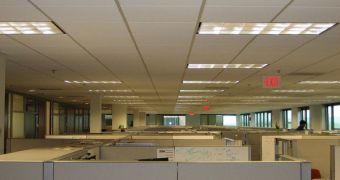Employers have been trying to boost their workers' productivity on the job ever since the first factories and farms came along, and they have always tried to do this by forcing strict discipline and obedience on their employees. But a new study shows, quite counter-intuitively, that this is not by far the best way to go. The paper reveals that leaving workers to set up and accomplish their own tasks is clearly more beneficial than setting up guidelines at the beginning of the workday or monthly.
For example, companies such as Google and Atlassian report that they regularly hold “free work times,” in which the workers do not have specified tasks to handle, but simply work on whatever they feel like, under the condition that they actually do something. The firms report that it's these times that generate up to half of their innovative products, while the other half is accomplished during regular work hours. However, it is important to consider that free work times are only organized from time to time, as in rarer than the average workday.
The secret to this type of success, psychologists say, is an individual employee's own intrinsic motivation to get something done. If all the strict guidelines and regulations, plans and sketches are removed, then this leaves a lot of leeway for each person's creative thinking to flourish and potentially come up with something new and brilliant. The workers are also not forced to think, but choose to do so out of their sheer pleasure, something that has been lost to the American working model for a long time. It's factors such as these ones that boost creativity and innovation, and not monetary bonuses.
The new research actually reveals that extra payments hinder innovation, as they give employees something to always have on their mind. They become focused on only one objective – getting the money – and the really good ideas that they may have are cast aside. In fields of work related to creative thinking, it would appear that autonomy is the new concept. And we are talking here about autonomy that is neither ideological, nor subjected to rigid bounds, but the real variety, in every sense of the word.
Of course, some employers are really set up in the “old ways” and would never go for this type of structure within their company. But, as leading firms begin to take notice of these alternative methods of boosting production and start applying them, we could soon see a huge difference between the two kinds of companies, generated precisely by the way they treat their workers in terms of leeway for creative thinking, Scientific Blogging reports.

 14 DAY TRIAL //
14 DAY TRIAL //